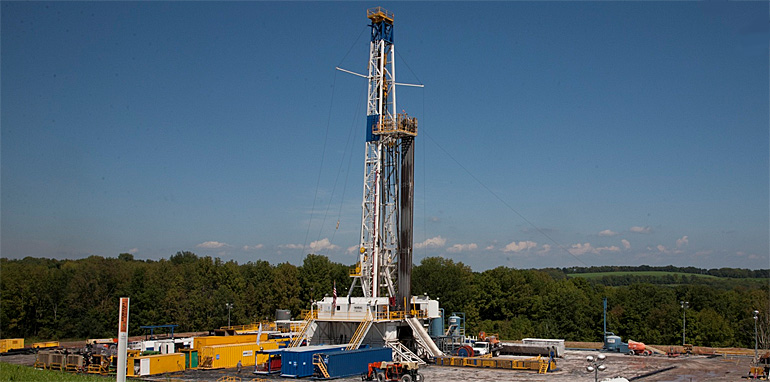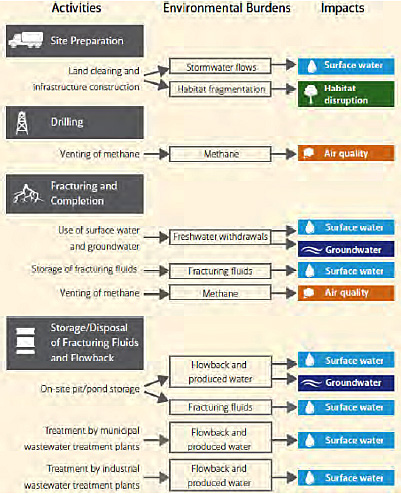KWR joins four-year NWO research programme on shale gas and water in the Netherlands
 The Netherlands Organisation for Scientific Research (NWO), together with KWR Watercycle Research Institute (KWR), have started a a four-year research programme focusing on the environmental risks for water systems during shale gas extraction.
The Netherlands Organisation for Scientific Research (NWO), together with KWR Watercycle Research Institute (KWR), have started a a four-year research programme focusing on the environmental risks for water systems during shale gas extraction.
The programme will focus on the environmental risks to the water system associated with the production of shale gas in the Netherlands, the possibilities of removing these risks, and the functioning of the national and international legal frameworks.
 Twelve most common risks considered by experts (source: Resources for the future - Pathways to dialogue, 2013)
Twelve most common risks considered by experts (source: Resources for the future - Pathways to dialogue, 2013)
Water as critical factor
Shale gas extraction is the subject of national and international debate. At this time, no shale gas is being extracted in the Netherlands.
The Dutch government is currently examining whether shale gas is useful and necessary, and whether it can be extracted responsibly.
Water management is a critical factor in the development of production sites for shale gas extraction. Particularly in the initial phase of the extraction, large volumes of water are needed for the so-called 'fracking'.
The process creates fractures in the shale-containing layer through the high-pressure injection of a mix of water, sand and chemicals.
The shale gas can thus be extracted with less resistance.
The questions this raises relate to changes in groundwater quality caused by fracking, and the quality and reuse potential of the discharged production water.
Private-public collaboration
The Shale Gas and Water research programme is a collaboration between the following private and public partners: NWO, KWR, Utrecht University, Wageningen University, University of Amsterdam, and the water supply companies Brabant Water, Oasen and WML.
The programme will focus on the situation in the Netherlands, with its site-specific geology, hydrology and administrative context.
Key research elements
The research programme’s key elements are:
• water use and geo-chemical vulnerability of the groundwater sources
• quality of the water discharged after fracking and production, and risk assessment
• treatment of discharged water
• regulation and governance
Societal interest
With this research, the parties want to contribute to the deliberations and decision-making regarding the possible risks and management options for water and shale gas extraction.
The research will also expand the knowledge of the deeper underground in the Netherlands, knowledge which is important in view of the increasingly busy subsurface.
This news item was originally published on the website of KWR.
More information
KWR Watercycle Research Institute
Nieuwegein, the Netherlands
+31 30 60 69 511
www.kwrwater.nl



